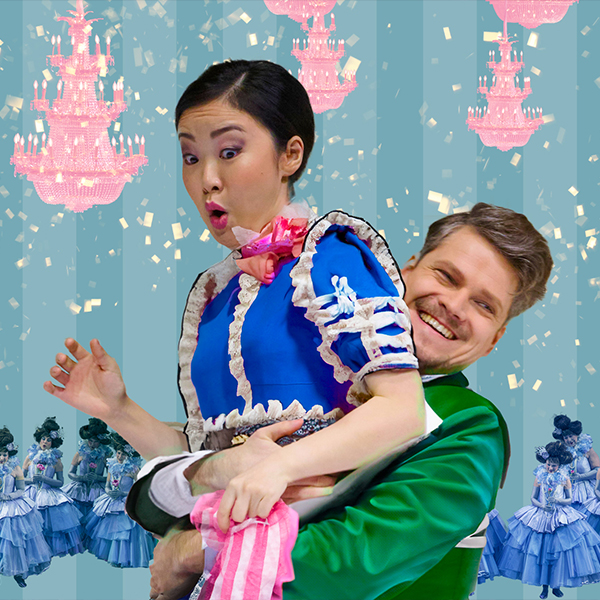November 25, 2024
Q&A with Kayleigh Decker
This season, mezzo-soprano Kayleigh Decker returns to Lyric for her role debut as Cherubino in Mozart's beloved The Marriage of Figaro. Since graduating from the Ryan Opera Center in 2020, the alumna's career has been marked by exciting debuts and acclaimed performances across the world. Read on as Kayleigh reflects on being back at Lyric, leaping into Cherubino's shoes, and the allure of The Marriage of Figaro.
How does it feel being back at Lyric?
Returning to Lyric is like coming home for me. Every single person at this house is so incredibly knowledgeable and supportive and being back in this environment not only reflects back to me where I've come from, and what I've accomplished since leaving, but it also helps me refocus and recalibrate on what's coming on the horizon.
This season we're celebrating the 50th anniversary of The Patrick G. and Shirley W. Ryan Opera Center. As an Ensemble alumna, how has the program helped shape your career?
I would not have the career I'm currently living without being a member of the Ryan Opera Center. It connected me with so many of the world's highest-achieving artists in the opera world and helped me define my artistic voice. As a young artist, it's so important to focus on the technique and the literal voice, but finding one's artistic and creative voice is just as important and the Ryan Opera Center really gave me the structure to excavate mine.
Kayleigh Decker performs “Non so più cosa son, cosa faccio" from THE MARRIAGE OF FIGARO
Bursting with adolescent energy and romantic confusion, Cherubino (sung here by Ryan Opera Center alumna Kayleigh Decker) confides in Susanna (Ying Fang), telling her about the uncontrollable feelings of love and passion that seem to overwhelm him at every turn.
What excites you the most about making your role debut as Cherubino?
Cherubino is and has been a dream role for me for many years. I love escaping into the reality of this world and the music brings me so much joy.
Is there a specific aria or moment from Cherubino or another character that audiences should look out for?
Definitely look for my jump into the pit in the second Act!
What makes this the perfect opera?
Not only is it a story that remains pertinent, funny, and subversive even almost 300 years after its birth, but the music is potent, vital, and breathtakingly beautiful. To me, the perfect opera is one that acts like a mirror and reflects not just the beautiful parts of humanity right back at us, but makes us look deeply at the corrupt, fragmented, vulnerable parts too. This opera does exactly that: it portrays a deeply flawed misogynistic figure wielding a “your body, my choice” power over the people, their subsequent uprising and outwitting of this corrupt figure, and the healing imperative of forgiveness and love. To me, that’s perfect.

